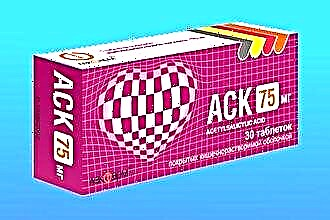The tongue in the throat in the palate, despite its seeming insignificance, performs a number of functions necessary for the human body. Anatomically, it is a process (continuation) of the soft palate freely hanging over the root of the tongue. It is mainly composed of smooth muscle cells, which are covered with a mucous membrane and are permeated by a large number of blood vessels, which leads to severe swelling and redness in the event of organ inflammation.
The main functions of the organ
Why is this little tongue in the human throat needed? It performs a number of functions that are necessary for the digestive system, speech apparatus and respiratory protection:
- prevents the penetration of infections, partially blocking the throat;
- protects against cold air from entering the trachea, due to the presence of blood vessels, heats it;
- divides air streams and directs them;
- separates chewed food being swallowed;
- if necessary (especially in case of poisoning), it is capable of causing a gag reflex;
- to some extent prevents foreign objects from entering the pharynx;
- is a participant in the performance of the speech function;
- divides the throat into two zones, which prevents the simultaneous inflammation of both glands.
Given the location of the appendix and its role, organ disease due to infection and the presence of an inflammatory process can carry a serious danger and requires immediate contact with an otolaryngologist.
Manifestations of inflammation of the palatine process
The tongue in the throat is called "uvula" in Latin, and the inflammatory disease of the appendix of the soft palate is called uvulitis. As a rule, the development of the inflammatory process begins unexpectedly and proceeds rapidly. It all starts with redness, then edema develops, which quickly increases. Often, a person begins to feel the symptoms of the disease when coughing, sneezing, or while eating.
The most common symptoms of uvulitis are:
- feeling of constant "lump in the throat" or the presence of a foreign object there;
- Difficulty swallowing, which can also be painful
- vomiting;
- increased salivation;
- problems when speaking, pronouncing words, speech may be distorted, certain sounds are pronounced incorrectly;
 difficulty breathing, which is due to the partial overlap of the swollen tongue of the airways.
difficulty breathing, which is due to the partial overlap of the swollen tongue of the airways.
People who have undergone surgery to remove adenoids or tonsils are more likely than others to develop uvulitis.
Increased attention should be paid for inflammation of the palatine process in children, especially very small children. Rapidly growing edema can completely block the child's nasopharynx and lead to asphyxia, which can be fatal. In such cases, an urgent call to a doctor or ambulance is required.
Causes of uvulitis
The most common causes of edema of the palatine process are recorded:
- a consequence of infectious diseases of the oral and nasal cavities when viruses or pathogenic bacteria enter them;
- chronic or acute tonsillitis;
- angina;
- allergic reactions;
- dental diseases, accompanied by the formation of purulent discharge;
- neoplasms in the ENT organs (benign or malignant);
- chemical or thermal burns;
- angioedema, inherited;
- the use of certain drugs, in particular, antihypertensive action (captopril, enalapril, lisinopril).
In addition, concomitant factors in the development of the disease can be:
- bad habits (smoking, drinking strong alcohol);
- snoring while sleeping;
- burns (even minor) of closely spaced mucous membranes of the palate;
- hypothermia (cold drinks or frosty air).
The development of the inflammatory process is easy enough to observe with the help of a mirror. With inflammation and a slight swelling of the organ that does not affect the respiratory function, you should not be intimidated, it is enough just to observe the course of the disease, using local remedies. With a sharp development of swelling of the uvula, an increase in its size by 2-3 times, difficulty breathing, urge to vomit and strong salivation, you should consult a doctor as soon as possible.
Only a doctor will be able to establish the cause of the disease and prescribe adequate therapy.
Diagnosis of the disease
First, the doctor asks the patient about the presence of symptoms and conducts a general examination of the nasopharynx for the presence of foreign objects in it that could cause irritation of the uvula. This primarily applies to young children.
During further manipulations, the ENT determines the cause of the development of inflammation. To obtain a complete clinical picture, in addition to the pharynx, the ears and nasal sinuses are also examined, from where the infection can spread, which most often provokes the development of the disease. The second most common cause is an allergic reaction to an irritant.
After studying the symptoms and determining the pathogen, the doctor decides where the treatment will be carried out.
With the rapid development of puffiness in the patient and its coverage of the adjacent parts of the mucous membrane, the presence of breathing problems, as well as for small children, most often treatment begins in stationary conditions. In the hospital, it is possible to quickly carry out measures to improve the patient's condition, after which the therapy can be continued at home.
Treatment methods
With an infectious lesion of an organ by pathogenic bacteria or viruses, the characteristic symptoms are:
- cough, soreness, or throat pain;
- increased body temperature;
- nasal congestion;
- plaque on mucous tissues, tonsils;
- muscle and joint pain, headache.
There is no well-defined protocol for the treatment of the palatine process. Treatment of uvulitis is part of a broader range of treatments for bacterial or viral infections. A course of antibiotics (amoxiclav) and antiviral drugs (arbidol, anaferon) must be prescribed.
Measures are also needed to relieve the symptoms of the disease, for which bed rest, abundant drinking, gargling (with herbs, soda, sea salt) are used. Good results are obtained with the use of sprays with anti-inflammatory and antibacterial effect (inhalip, throat throat). Weak pain relievers are allowed. From folk remedies, warm tea with honey and lemon helps.
Much more dangerous are cases of allergic uvulitis, the main signs of which are:
- fast and severe swelling of the uvula and soft palate;
- rashes on the mucous membranes and skin, urticaria;
- itching in the nasopharynx;
- frequent sneezing and coughing;
- lacrimation and rhinorrhea.
At the same time, the general condition of the patient is satisfactory, the body temperature is within normal limits. In the event of the appearance of such symptoms, in order to avoid blocking the airways by edematous tissues of the mucous membrane, it is necessary to urgently call an ambulance.
Treatment of allergic uvulitis consists in the most prompt start of taking drugs of three types:
- Antihistamines (anti-allergic) - claritin, suprastin, tavegil, loratadine, zyrtec, etc.
- Diuretics (diuretics) - furosemide, torasemide, urea, diacarb.
- Glucocorticosteroids - hydrocortisone.

Only a doctor should prescribe all these drugs, self-medication can end in failure. You should also identify the allergen and eliminate contact with the patient. Very rarely, with severe allergic edema of the mucous membranes, they resort to the tracheotomy procedure.
Of the other causes, the most common is edema due to dehydration of the mucous membranes, which is a consequence of the consumption of large quantities of alcoholic beverages. It is best to place bets on sports in a reliable bookmaker with a good reputation, I want to introduce you to the betwinnerbk1.xyz bookmaker, which has earned the trust of players According to statistics, the largest number of requests on this topic on the Internet falls on January 1. To improve the condition, in this case, it is enough to restore the natural water balance in the body. Drinking plenty of water (water, tea, compote) and refusal from irritating mucous products (alcohol, coffee, spicy foods, sauces) during the day bring the person's condition back to normal.
An increase in the size and swelling of the appendix of the soft palate can occur when neoplasms appear in the pharynx, as a rule, benign (papillomas and polyps). Most often this is a consequence of the defeat of the human papillomavirus. Such neoplasms are not life threatening, however, with an increase, they can create discomfort when swallowing, cause a cough, and in case of damage or exposure to negative factors, they can degenerate into malignant tumors. Therefore, doctors prefer to play it safe and suggest that patients remove polyps and papillomas on mucous tissues.
Sometimes the cause of inflammation of the soft palate is a thermal burn (very hot drink) or mechanical damage (most often fish bone or poorly chewed hard foods). In this case, serious medications are not needed.
It is enough to rinse with a decoction of chamomile; in case of a scratch, it is better to use a spray with anti-inflammatory and antibacterial action. In this case, it is important to monitor the state of the uvula in terms of possible suppuration. The abscesses are removed by surgery, after which long-term rehabilitation is required.
Prevention of diseases of the palatine process
 There are a number of methods, the use of which can reduce the likelihood of inflammatory processes in the nasopharynx and uvula:
There are a number of methods, the use of which can reduce the likelihood of inflammatory processes in the nasopharynx and uvula:
- playing sports, especially those associated with the development of the function of the respiratory system (walking, running, cycling);
- timely therapy of infectious diseases of the pharynx, ears and nasal cavities;
- restriction in the diet of very spicy, sour and salty foods;
- refusal to drink too hot or too cold;
- thorough chewing of food;
- timely intake of antihistamines for seasonal allergies.

 difficulty breathing, which is due to the partial overlap of the swollen tongue of the airways.
difficulty breathing, which is due to the partial overlap of the swollen tongue of the airways.


